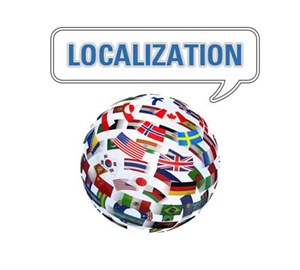Successful Global Marketing and Branding Localization – McDonald’s in France
I ran across a great article published on January 03, 2012 in Knowledge@Wharton entitled “Born in the USA, Made in France: How McDonald’s Succeeds in the Land of Michelin Stars”. It was written by Lucy Fancourt, Bredesen Lewis and Nicholas Majka, members of the Lauder Class of 2013. Having spent the majority of my own career working with translation/localization companies on four different continents and helping clients enter new markets by providing copywriting, document translation, website localization and most recently Global SEO, this very short, sweet and incredibly well-articulated article by these three students is a must read for anyone who is taking their franchises and brand global.
To read the full article you can check it on “Born in the USA, Made in France: How McDonald’s Succeeds in the Land of Michelin Stars“.
Four quotes caught my attention
Quote #1: “France — the land of haute cuisine, fine wine and cheese — would be the last place you would expect to find a thriving fast-food market.”

McDonald’s has taken a product and brand that is uniquely American and has localized it to make it truly “French”. McDonalds not only customized the menu for the local palate, but also communicated (in French!) how that offering would appeal to the discerning French consumer. That “offering” is not just the food that is being served, but the environment in which that French consumer experiences it.
If your company is looking to expand into new markets, then you’ll want to work with a localization agency that makes itself part of that customization process. Your agency must strive to understand your key positioning points, and to help craft a local-language message that resonates with your target audience. As we see from this article, when localization is done successfully, it can not only contribute to market expansion, but also to a company’s bottom line. Today, France is one of McDonald’s largest markets!
For more information about the French market and French language check our white paper Website Globalization and E-Business – France.
Quote #2: “And yet McDonald’s, the world’s largest fast-food corporation, with a global presence in 123 countries across all six inhabited continents, has turned the home of Le Cordon Bleu cooking academies and the Michelin Guide of world-renowned restaurants into its second-most profitable market in the world. The chain has more than 1,200 restaurants in France — all locally owned franchises — and a growth rate of 30 restaurants per year in the past five years alone.”
The fact that all these franchises are locally owned really makes a statement about McDonalds’ skill at adapting their offering to the market – local investors bought in and are prospering!
Local understanding is critical in successful localization. Your localization services partner must be willing to (and structured to!) work with all levels of your organization to ensure successful implementation of the localized strategy. This includes all aspects of marketing communications … from print & web communications, in-store promotions, and HR materials to product preparation guidelines. The bottom line: A localized strategy has to be consistent throughout all the touchpoints – whether those are for the end-consumer or the franchisee.
Quote #3: “The three main reasons for McDonald’s success are local responsiveness, rebranding and a robust corporate ecosystem.”
Localization is so much more than mere “translation”. You need to have a team of in-country translators and language professionals who “live and breathe” local customs and language nuances. When you do, you are better positioned to communicate your corporate identity and product/service offering deeper into these new, local markets. This is done successfully through specialization in localized print, digital, and multimedia channels.
Quote #4: “… constantly looking to adapt to the needs and preferences of the French culture.”

Tastes are constantly changing in the Quick Service Restaurant segment, and to remain relevant to your customer base, you need to adapt and respond with new products and services that match the local trends. Your marketing message needs to be just as fresh and appealing.
Localization of a strategy is not a one-off. It is not a one-time occurrence. It’s a partnership in which you and your language service provider must constantly work together to evolve your message and communication strategy in these new, local markets. Sometimes that message or theme will be the same for some markets … and sometimes it will need to be tweaked for others. Sometimes the message works now, but will need to be updated later. And that’s where professional localization comes into play. That is what differentiates a mere “Translation Company” from a “Professional localization PARTNER” that you’ll want to work with.
